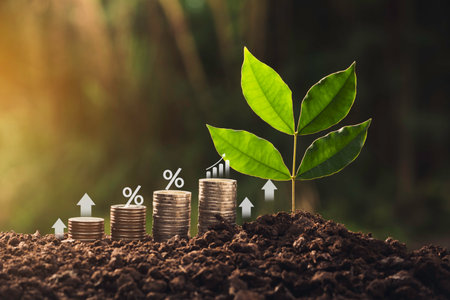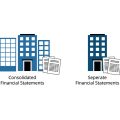1. Understanding Junior ISAs in the UK
Junior Individual Savings Accounts, commonly known as Junior ISAs, are a popular savings tool specifically designed for children living in the UK. Introduced to encourage families to save for their childrens future, Junior ISAs offer a tax-efficient way to build up savings over the years. Parents or legal guardians can open a Junior ISA on behalf of any child under 18 who lives in the UK and does not already have a Child Trust Fund. The money saved in these accounts is locked away until the child turns 18, at which point they gain full access and control over the funds.
The key features of Junior ISAs include two main types: Cash Junior ISAs and Stocks & Shares Junior ISAs. While Cash Junior ISAs work much like a regular savings account with tax-free interest, Stocks & Shares Junior ISAs allow investments in ethical funds, green companies, or sustainable projects, making them ideal for families keen on supporting environmental causes.
One of the biggest advantages of using a Junior ISA is that all interest, dividends, and capital gains earned are free from income and capital gains tax. This means that every penny saved goes directly towards your childs future—whether that’s university fees, their first home, or starting a business. In addition to being tax-efficient, these accounts are also flexible; you can choose to make regular contributions or add lump sums whenever it suits your budget.
By choosing ethical and green investment options within a Junior ISA, parents can teach children about sustainability and responsible finance from an early age while also taking advantage of generous government allowances and tax benefits unique to the UK.
2. The Importance of Ethical and Green Investing
Ethical and green investing is about putting your money into companies and funds that prioritise positive environmental, social, and governance (ESG) practices. The core principle is to support businesses that not only aim for financial returns but also strive to make a meaningful impact on society and the planet. For UK families considering Junior ISAs for their children, ethical investing means aligning savings with personal values—whether thats tackling climate change, promoting fair working conditions, or supporting diversity and inclusion.
Why Is Ethical Investing Gaining Popularity in the UK?
Over recent years, ethical and green investing has seen a significant rise in popularity across the UK. This shift is driven by increased public awareness of climate change, high-profile sustainability campaigns, and regulatory changes encouraging greater transparency from investment providers. Many Brits are now keen to ensure their investments are not contributing to harmful practices like fossil fuel extraction or deforestation. Parents are especially motivated to set a good example for their children by choosing Junior ISAs that support a greener future.
Key Principles of Ethical and Sustainable Investing
| Principle | Description |
|---|---|
| Environmental Responsibility | Investing in companies that reduce carbon emissions, minimise waste, and protect natural resources. |
| Social Impact | Supporting businesses with fair labour practices, community engagement, and strong human rights records. |
| Governance | Favouring firms with transparent leadership, ethical management, and accountability. |
| Avoidance Screening | Excluding industries such as tobacco, arms manufacturing, or fossil fuels from portfolios. |
| Active Engagement | Encouraging companies to improve their ESG standards through shareholder advocacy. |
The Broader Picture: Environmental and Social Concerns
Choosing an ethical or green Junior ISA is about more than just ticking a box; it’s a way of responding to the broader issues facing our world today. By teaching kids about responsible investing early on, parents can help them understand the importance of sustainability—showing that small financial decisions can have big impacts. In the long run, these choices support global efforts to combat climate change and promote social justice, helping to build a better world for generations to come.

3. Building Sustainable Habits from a Young Age
Encouraging children to take part in financial decisions through Junior ISAs does far more than simply teach them about saving money—it helps nurture responsible, eco-conscious habits that can last a lifetime. By introducing the concept of ethical and green investing early on, parents can instil the values of sustainability and social responsibility at a formative stage. This proactive approach allows young people to understand not just the importance of growing their savings, but also the impact their investments can have on the environment and wider society.
The Benefits of Early Financial Involvement
When children are given a say in where their Junior ISA funds are invested—especially when those choices include green or ethical options—they learn that money is more than just something to spend or save. It becomes a tool for positive change. Discussing investment choices together as a family opens up important conversations about climate change, ethical business practices, and how individual actions contribute to collective wellbeing. This involvement boosts children’s confidence, enhances their critical thinking skills, and encourages them to become thoughtful stewards of both their finances and the planet.
Shaping Lifelong Green Habits Through Junior ISAs
Choosing sustainable investment funds within a Junior ISA can reinforce lessons about making mindful choices. For example, opting for funds that exclude fossil fuels or support renewable energy projects demonstrates that small decisions today can have a big impact tomorrow. Over time, these repeated experiences help normalise sustainable thinking, making it second nature as children grow into adults who actively prioritise ethics and sustainability in all aspects of life—from shopping habits to career choices.
Building a Greener Future Together
Ultimately, involving kids in ethical investing via Junior ISAs not only strengthens their financial literacy but also fosters a lifelong commitment to sustainability. By weaving these principles into everyday discussions about money, families across the UK can empower the next generation to make greener, more responsible choices—benefiting both their own futures and the health of the planet.
4. Choosing Ethical and Green Junior ISA Options
When it comes to selecting ethical and green Junior ISA options, it’s important to take a careful approach to ensure your child’s savings are genuinely supporting sustainability. With the rise of eco-conscious investing in the UK, many providers offer products labelled as ‘ethical’ or ‘green’, but not all are created equal. Here’s how you can make informed choices for your family.
Understanding What Makes an Investment Ethical or Green
In the UK, ethical and green investments typically avoid companies involved in industries like tobacco, fossil fuels, weapons manufacturing, or gambling. Instead, they focus on businesses that prioritise environmental stewardship, social responsibility, and good governance (often referred to as ESG criteria).
What to Look For in UK-Based Funds and Providers
When browsing Junior ISA options, pay attention to:
- Transparency: Does the provider clearly disclose what makes their fund ethical or green? Genuine options will have detailed information about their screening process.
- ESG Ratings: Many UK funds are rated for their environmental, social, and governance practices. Higher scores generally indicate stronger commitments to sustainability.
- Fund Holdings: Review the top holdings of any fund. Are they aligned with your values? Avoid funds that include companies you’d rather not support.
- Third-Party Certifications: Look for recognisable certifications such as the Fairtrade, B Corporation, or FTSE4Good.
Comparison Table: Key Features of Ethical Junior ISAs
| Provider | Main Focus | Typical Screening Criteria | Transparency Level |
|---|---|---|---|
| Nest Junior ISA | Broad ESG Investing | No fossil fuels, tobacco or arms; strong governance | High: Regular reporting |
| The Children’s ISA (Ethical Option) | Sustainable Industries | Avoids high carbon footprint companies; promotes renewables | Moderate: Summary disclosures |
| Nutmeg Junior ISA (Socially Responsible) | Diversified ESG Portfolio | No controversial weapons; supports gender equality and low-carbon initiatives | High: Detailed online breakdowns |
Avoiding Greenwashing in Junior ISAs
Greenwashing is when a product is marketed as eco-friendly without meaningful backing. To avoid this, always check for independent audits or ratings and read customer reviews on trusted UK financial forums like MoneySavingExpert.
Tapping Into Local Resources for Guidance
If you’re unsure where to start, consider speaking with a local financial adviser who specialises in sustainable investing or use comparison sites like Which? and Good With Money. These platforms often break down the pros and cons of each provider in plain English—perfect for busy parents looking to make smart, planet-friendly choices for their children’s future.
5. Practical Tips for Parents: Saving Money and Going Green
For UK parents aiming to nurture both financial wisdom and eco-conscious values in their children, combining money-saving habits with sustainable choices is a powerful approach. Here are some everyday strategies you can adopt as a family:
Make the Most of Hand-Me-Downs and Charity Shops
Encourage your child to appreciate second-hand clothing, books, and toys from charity shops or family friends. Not only does this save money, but it also reduces waste and supports local charities—a real win-win for your wallet and the environment.
Go Digital to Cut Costs and Paper Waste
Opt for online statements, digital receipts, and e-books instead of printed versions where possible. Many banks and Junior ISA providers now offer comprehensive online portals, letting you manage your childs savings without unnecessary paperwork. Less clutter at home, less waste in landfill!
Choose Sustainable Brands and Products
When spending on essentials, look for brands with strong ethical or eco-friendly credentials. Buying in bulk, choosing reusable products (like water bottles and lunch boxes), or supporting B Corp certified companies helps teach children that every pound spent can make a positive difference.
Introduce Eco-Friendly Habits That Save Money
- Walk or Cycle: Swap short car journeys for walking or cycling to school—good for your health, the planet, and your petrol budget.
- Reduce Energy Use: Simple actions like turning off lights, unplugging devices, or using energy-saving bulbs all add up on your household bills.
Link Savings to Green Goals
Set challenges together—for example, save money by reducing food waste each week and put the savings into their Junior ISA. This connects practical sustainability with visible financial rewards, reinforcing positive habits.
Get Children Involved in Local Green Initiatives
Join community clean-up days or local gardening projects. Many UK councils offer free tree saplings for planting—these activities cost little but teach children about environmental stewardship while fostering a sense of community pride.
By weaving these green habits into everyday life and linking them to Junior ISA savings goals, you’ll be setting your child up not just for financial security but also for responsible citizenship in a more sustainable world.
6. Talking to Children About Money and the Environment
Starting conversations about money and the environment with your children doesn’t have to be daunting. In fact, Junior ISAs provide a brilliant opportunity to teach kids not only about saving and investing, but also about making choices that are good for the planet. By weaving these topics into everyday life, you can help foster a sense of responsibility and awareness from an early age.
Keep It Simple and Relatable
Begin by explaining basic concepts in simple terms. For younger children, use analogies they understand—like saving pocket money for a toy, or choosing to recycle instead of throwing things away. Highlight how putting money into their Junior ISA helps it grow over time, much like planting seeds in the garden and watching them flourish.
Connect Saving with Sustainability
Discuss how the money saved in their Junior ISA can be invested in companies that care for the environment—such as those producing renewable energy or working to reduce waste. Explain that these choices help protect animals, forests, and oceans, making it clear that their actions can have a positive impact on the world around them.
Encourage Questions and Curiosity
Let your child ask questions about where their money goes and what it supports. Use resources like books or age-appropriate documentaries to illustrate how green investments work. You could even explore local community projects or eco-friendly initiatives together, linking what they see in real life to the concept of ethical investing.
Lead by Example
Children learn best by observing adults. Share your own experiences of budgeting, making sustainable choices at home, or switching to green energy providers. Show them how you research which companies are environmentally responsible when making purchases or investment decisions.
Make Money Management Fun
Turn learning into a game—track their savings together on a colourful chart, reward sustainable actions with small treats (like a trip to the park), or set family challenges such as reducing electricity usage for a week. These activities make discussions about money and sustainability more engaging and less intimidating.
By having regular, age-appropriate chats about saving, investing, and caring for the planet, you’re equipping your child with essential life skills. Not only will they understand how to manage money wisely through tools like Junior ISAs, but they’ll also appreciate the importance of looking after our environment—skills that will serve them well throughout their lives.


